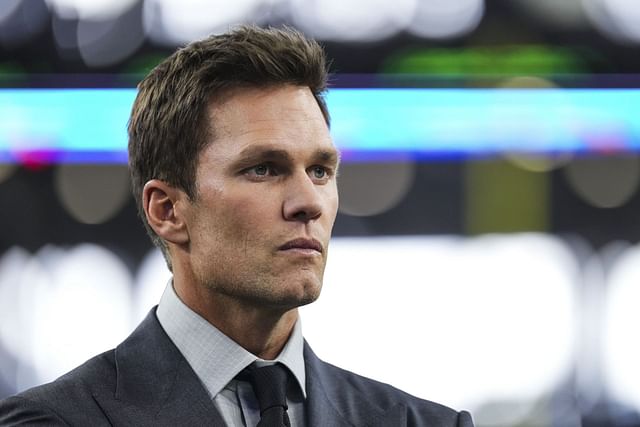Tom Brady is still adjusting to his new role as a broadcaster. After retiring from the NFL and trading his football gear for a suit, Brady’s transition to the broadcasting booth has been eventful. While he has a lucrative 10-year, $375 million deal with Fox, he is still refining his on-air personality. However, his commentary has faced intense scrutiny, amplified by his status as one of the greatest quarterbacks of all time.

During the Giants-Cowboys game on Thursday, Brady commented on the situation surrounding Daniel Jones, the Giants’ quarterback who had been released earlier. Drew Lock had taken over at quarterback, prompting Brady to weigh in. On the broadcast, Brady remarked:
“I don’t know how that whole situation went down, but to think that you’d ask for a release from a team that committed a lot to you is maybe different from how I would’ve handled that. I always felt I wanted to gain the trust and respect of my teammates regardless of the situation, knowing that I was trying to do the best I could for the team because that was the most important thing.”
These comments didn’t sit well with former Giants player Tiki Barber. Barber criticized Brady, suggesting that the legendary quarterback lacked sufficient context to make such statements. Speaking on a WFAN show, Barber noted:
“Do you think he’s having that conversation because he doesn’t do production meetings because he’s not allowed to? If you have any conversation with anyone on the Giants, you’re not saying that. I was there when they released him. It was surreal. It was bizarre. I don’t think Tom is privy enough to the information they need to be to have that conversation about Daniel Jones.”
Barber’s remarks highlighted a unique complication for Brady: as part-owner of the Las Vegas Raiders, he is prohibited from participating in production meetings with NFL teams, limiting his access to insider information.
The debate over Daniel Jones’s situation didn’t end there. Following his demotion to the Giants’ fourth-string quarterback, Jones was assigned to the scout team and even played as a safety during practices. This led to significant backlash from fans, who felt the franchise was disrespecting him. Barber, however, sought to clarify the situation, explaining:
“All this nonsense I keep hearing about ‘You put him in a disrespectful spot to play scout team’—he wasn’t. He was walking through, playing safety. Sometimes the coaches do that. It’s nothing. Number two, the reason he asked for his release is they wouldn’t even let him work out! He’s going to sit around for 5-6 weeks and be a potato and do nothing?”
Barber’s perspective suggests that Jones’s release and subsequent scout team role were more nuanced than initially perceived, emphasizing the complexities of NFL team dynamics and player management.